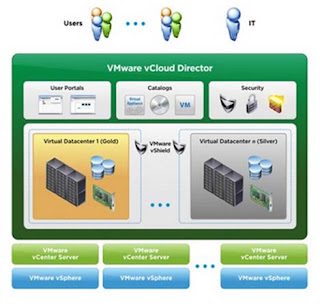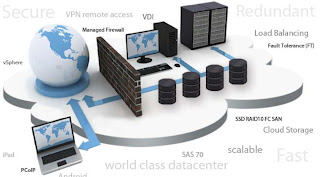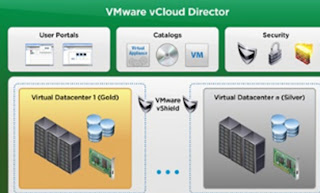What is cloud computing and how can it benefit you?
Cloud computing refers to the method of managing, computing, and storing data on a network of remote servers connected via the Internet. In simpler terms, nothing is actually worked on or saved onto your desktop, laptop, smartphone, etc.- it is all done via the Internet on giant server computers that are not your own. Having data that is accessible on multiple devices could come in quite handy; you could work on a document on your work computer, save it to the cloud, and later work on the same document from anywhere without having to carry around a flash drive or having to worry about whether or not the computing device that you’re going to use has the necessary program or application to open and modify the document. All the data that you choose to save to the cloud syncs to all your devices automatically; any device that you access the data on will give you the most updated version of the data. Essentially, having no data stored on your device means it will run faster since much hard drive space will be freed up, but it also means that access to your data is dependent upon your Internet connection.
If you use or have used Gmail or Google Docs, then you have already experienced personal cloud computing. Using Gmail or Google Docs, it is easy to see the main components of cloud computing at work: you can access Gmail or Google Docs from pretty much any computing device, all the data is synced, up-to-date, transferable, mobile, and instantly accessible. Although you are able to work on any document from anywhere on any device, there is a good chance that the functionalities of the cloud computational system do not match that of the original computational system such as any Microsoft Office Program. For example, you might still be able to work on a particular Excel document, but all the functions of the actual Excel program might not be available to you. This is sure to change, however, as cloud computing gains more and more popularity.
Where is all this data actually stored, you may ask? Independent companies such as Amazon, Microsoft and Google offer cloud hosting services. Most public cloud hosting services are free of charge- the companies let you use their computing power and storage for free since in return, they get to inundate you with advertisements, which is actually not a bad tradeoff for the average consumer. There are Private cloud hosting services which are mostly used by companies or individuals that load sensitive documents onto the cloud and are concerned with safety. Businesses may choose to switch from having on-site servers to compute and store data on to renting out computational and storage space at a huge, remote data center. For more Details Please Visit : http://www.winky.net/
cloudhosting - 12. Jun, 13:31



